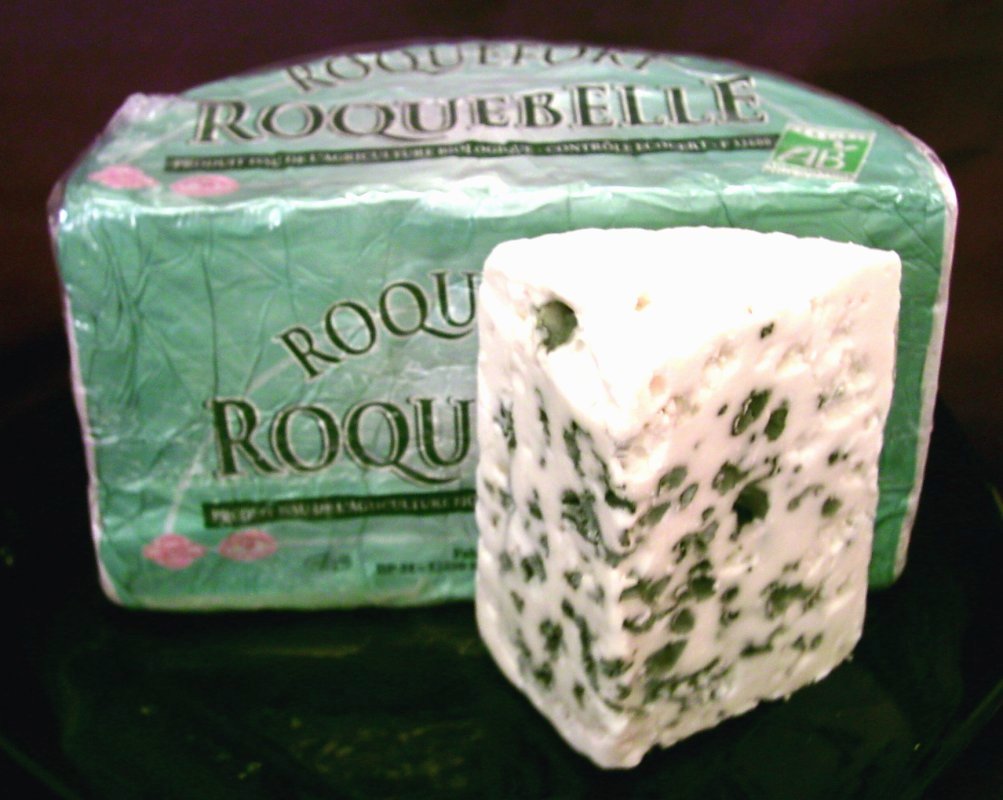It happened today - June 4, 2016
 Say cheese. It’s easier than pronouncing Roquefort unless you’re French. In which case you have a monopoly on it. Typical, isn’t it?
Say cheese. It’s easier than pronouncing Roquefort unless you’re French. In which case you have a monopoly on it. Typical, isn’t it?
In good and bad ways. It is typical of the French to produce a really remarkable cheese with, what’s that thing people are often afraid of in food? Oh yeah. Flavour. (Yes, I grew up with English cooking.) And to have a rich folklore surrounding it, some of which might even be accurate. But it’s also typical that there would be a legally enforced monopoly going back into folklore.
On the plus side, Roquefort is one of those mold cheeses, the mold in question being Penicillium roqueforti. And supposedly some youth (a word here meaning gormless teenage boy) was so stunned by the sight of a beautiful girl that he ran off, leaving his lunch including ewe’s milk cheese in a cave. And when he got back months later (the French apparently know something about kissing), voila. Legend also has it that Pliny the Elder praised Roquefort or something similar for, again, flavour. And archeological evidence of cheese-making in the area goes back into prehistory.
On the minus side, EU law says that only cheeses aged in the Combalou caves in Roquefort-sur-Soulzon can be called Roquefort. Continuing the monopoly granted by King Charles VI on June 4, 1411. You’d think Charles had better things to do, or at least more pressing ones, like fighting the English or running about convinced he was made of glass. (No, really, hence his nickname “Charles the Mad”.) But in France monopolies are in, along with growth lagging behind the Anglosphere.
In 1925, Roquefort got the first French Appellation d'Origine Contrôlée and in 1961 a tribunal ruled that other people could make the stuff but only if it was ripened in the caverns of Mont Combalou could you call it Roquefort. Blah blah blah EU monopoly.
Now personally I’m all for freedom of cheese. I think you should enjoy a special relationship with clients because yours tastes really good not because some politician waved their magic pen at your product label. But I do recognize that it’s also a good idea to have a cheese worth going and getting. Indeed, I’m dismayed to learn that the mold that occurs naturally in those famous caves is also often cultivated in laboratories for greater consistency, and sprayed in as an aerosol. Frankly real cheese appeals in exact proportion as it does not resemble process cheesefood including in its lack of homogeneity.
So yes, the monopoly is hard to swallow. But the cheese is another story altogether.